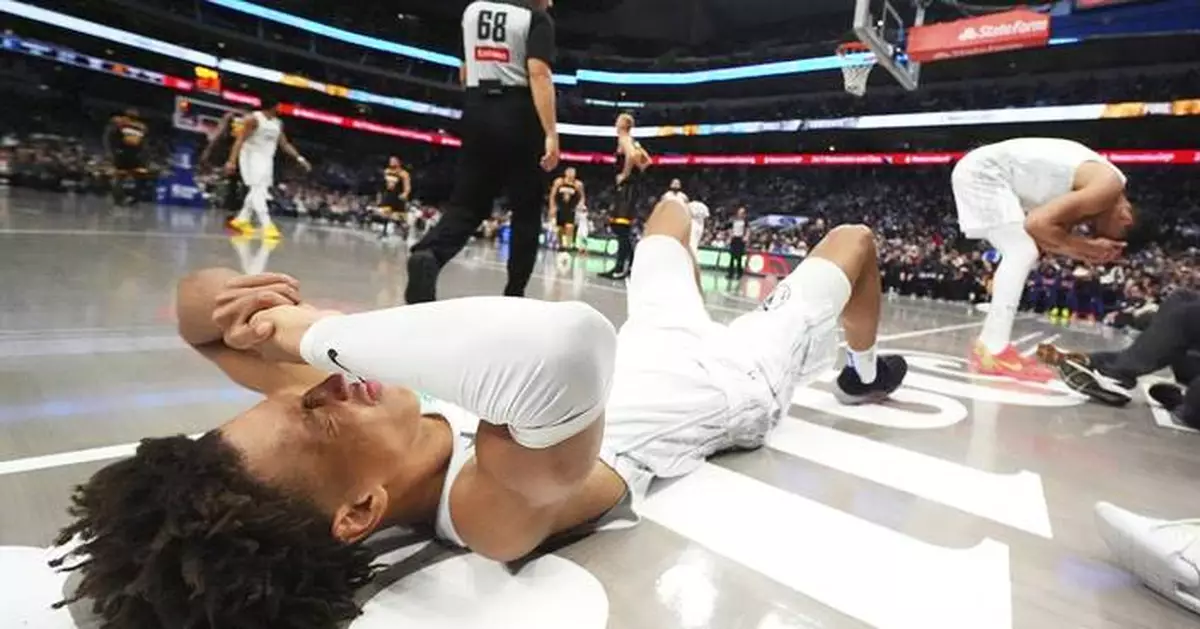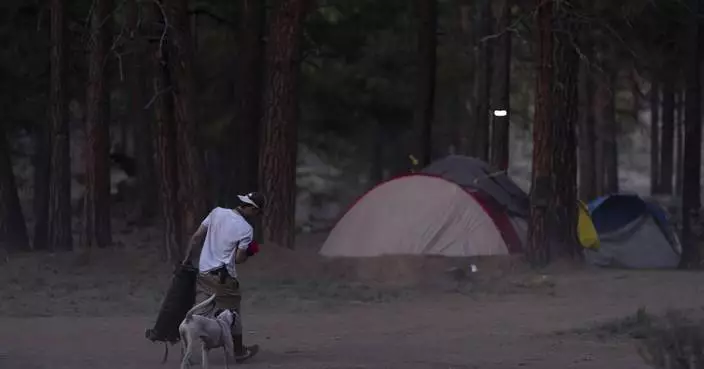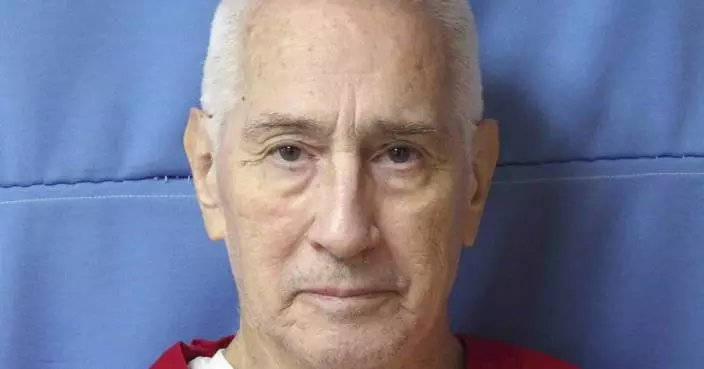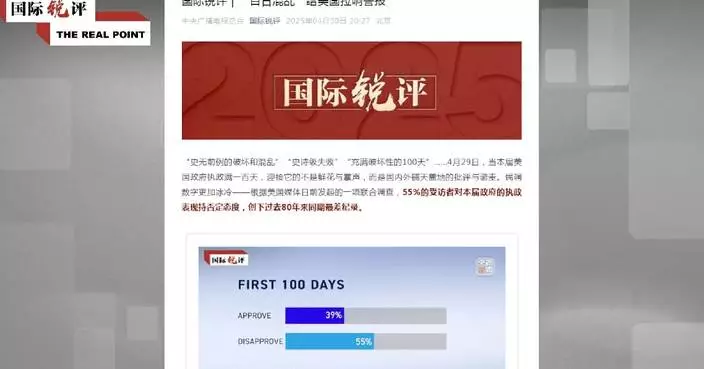DALLAS (AP) — Dwight Powell walked to the bench with blood streaming down his forehead while teammate Kessler Edwards lay flat on his back holding his head.
The Dallas Mavericks have lost Kyrie Irving to a season-ending knee injury, and there's no timetable for Anthony Davis' return after the star forward injured a groin in his Dallas debut following the stunning trade that sent Luka Doncic to the Los Angeles Lakers.
The latest might be the lowest for the Mavs. They finished a 125-116 loss to the Phoenix Suns on Sunday with just seven healthy players, and that was with Edwards getting back on the floor with a bandage over his left eye.
Dallas began the game with nine active players, and was down to seven after the heads of Edwards and Powell collided as they chased a loose ball late in the third quarter. Both needed stitches, coach Jason Kidd said.
Powell never returned after getting treated on the bench to stop the bleeding and going on to the locker room. About the time Kessler came back in the fourth quarter, guard Brandon Williams was ruled out with left hamstring tightness.
Caleb Martin was playing for just the second time since returning from a right hip sprain that sidelined him going back to before the trade that brought him from Philadelphia last month. Dante Exum has been nursing a right foot injury. Both were on minutes restrictions.
“We had no subs because of the time restrictions on two,” Kidd said. “We're trying to figure it out as we go.”
Oh, and the Mavs have to play again Monday night in San Antonio. Kidd seemed sure nobody was coming off an injured list that also includes P.J. Washington Jr. (ankle), Kai Jones (quadriceps) and Jaden Hardy (ankle).
There are more. Those are just three with any kind of a chance to return soon.
“We're probably going to have seven, eight at the most,” Kidd said of the first of consecutive road games against the Spurs.
Naji Marshall had a career high for the second consecutive game with 34 points and played more than 40 minutes for the first time in his career. He wasn't even one of the three who played the entire fourth quarter.
“Honestly, I haven’t,” Marshall said when the fifth-year pro was asked if he had seen anything similar with injuries. “But this is our job. All those guys in the front office signed all of us on the roster hoping that if we had to play we could fill the shoes of the next man. I’m just going to keep doing that until those guys get back.”
Besides Irving and Davis, the longer-term injured list includes centers Daniel Gafford (knee) and Dereck Lively II (ankle) and Olivier-Maxence Prosper (wrist).
It's possible all five won't play again this season for the defending Western Conference champions, who will have a hard time holding off Phoenix or possibly others for 10th place, the final spot in the West play-in tournament.
Suns star Kevin Durant had 21 points, nine rebounds and eight assists as Phoenix pulled within 1 1/2 games of the Mavs.
“It’s definitely one of the first I’ve seen where they’re just straight injuries and not tanking,” Durant said. “Guys are genuinely injured for longer than a couple of weeks. It's sad to see a lot of players out.”
After the game, Kidd was asked jokingly about whether he and assistant coach Jared Dudley could provide any minutes off the bench. Kidd was a Hall of Fame point guard, and Dudley is just four years removed from his playing days.
“I don't think we can do that,” Kidd said. “We can't sign anybody. It does cost too much. You've gotta laugh because if you don't, this will drive you crazy.”
AP NBA: https://apnews.com/hub/nba

An open cut is seen on the eye of Dallas Mavericks forward Kessler Edwards after he collided with teammate center Dwight Powell during the second half of an NBA basketball game against the Phoenix Suns Sunday, March 9, 2025, in Dallas. (AP Photo/Julio Cortez)

Dallas Mavericks players, from left, Anthony Davis, Dereck Lively II, Jaden Hardy, and P.J. Washington wear street clothes as they watch the first half of an NBA basketball game against the Phoenix Suns Sunday, March 9, 2025, in Dallas. (AP Photo/Julio Cortez)
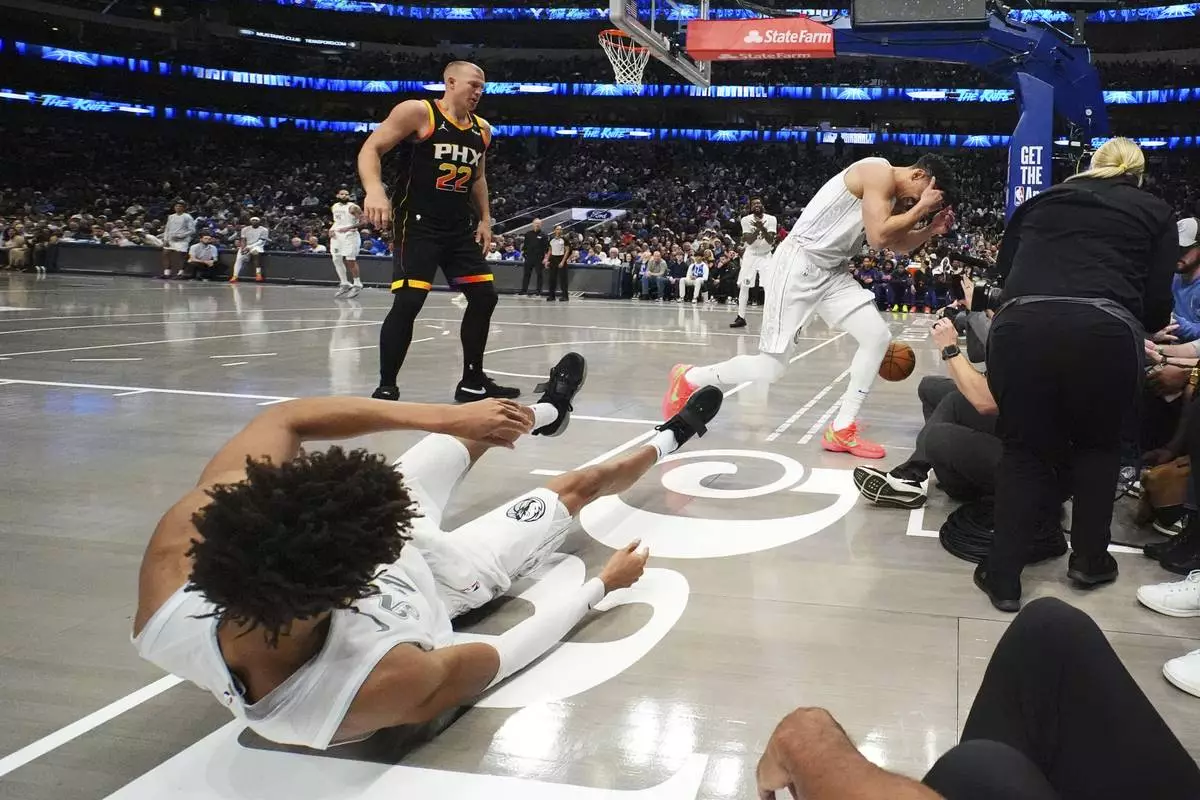
Dallas Mavericks forward Kessler Edwards, left, and center Dwight Powell react after colliding while chasing a rebound against the Phoenix Suns during the second half of an NBA basketball game Sunday, March 9, 2025, in Dallas. (AP Photo/Julio Cortez)
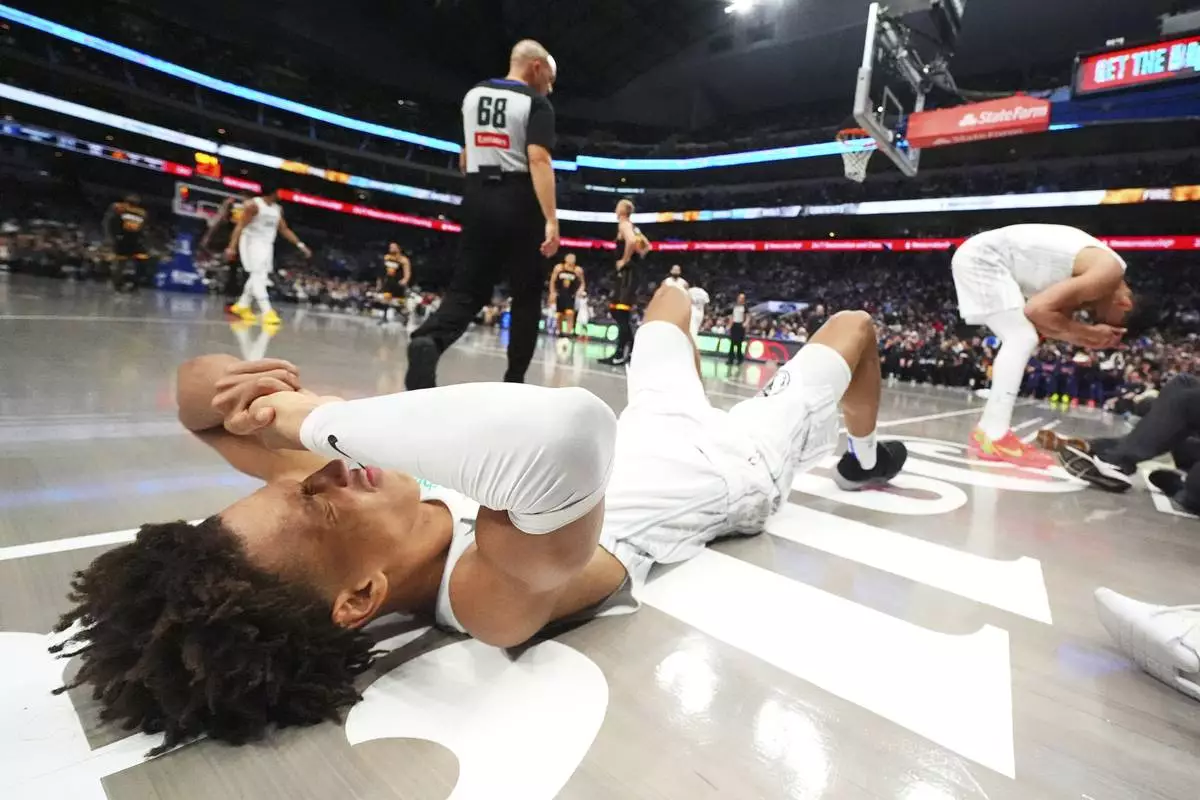
Dallas Mavericks forward Kessler Edwards, left, and center Dwight Powell react after colliding while chasing a rebound against the Phoenix Suns during the second half of an NBA basketball game Sunday, March 9, 2025, in Dallas. (AP Photo/Julio Cortez)
A federal judge on Thursday barred the Trump administration from deporting any Venezuelans from South Texas under an 18th-century wartime law and said President Donald Trump's invocation of it was “unlawful.”
U.S. District Court Judge Fernando Rodriguez Jr. is the first judge to rule that the Alien Enemies Act cannot be used against people who, the Republican administration claims, are gang members invading the United States. Rodriguez said he wouldn't interfere with the government's right to deport people in the country illegally through other means, but it could not rely on the 227-year-old law to do so.
“Neither the Court nor the parties question that the Executive Branch can direct the detention and removal of aliens who engage in criminal activity in the United States,” wrote Rodriguez, who was nominated by Trump in 2018. But, the judge said, "the President’s invocation of the AEA through the Proclamation exceeds the scope of the statute and is contrary to the plain, ordinary meaning of the statute’s terms.”
In March, Trump issued a proclamation claiming that the Venezuelan gang Tren de Aragua was invading the U.S. He said he had special powers to deport immigrants, identified by his administration as gang members, without the usual court proceedings.
"The Court concludes that the President’s invocation of the AEA through the Proclamation exceeds the scope of the statute and, as a result, is unlawful,” Rodriguez wrote.
In an interview on Fox News, Vice President JD Vance said the administration will be “aggressively appealing” the ruling and others that hem in the president's deportation power.
“The judge doesn’t make that determination, whether the Alien Enemies Act can be deployed,” Vance said. “I think the president of the United States is the one who determines whether this country is being invaded.”
The chair of the Congressional Hispanic Caucus, Rep. Adriano Espaillat, D-N.Y., said in a statement the judge had made clear “what we all knew to be true: The Trump administration illegally used the Alien Enemies Act to deport people without due process.”
The Alien Enemies Act has only been used three times before in U.S. history, most recently during World War II, when it was cited to intern Japanese-Americans.
The proclamation triggered a flurry of litigation as the administration tried to ship migrants it claimed were gang members to a notorious prison in El Salvador.
Rodriguez’s ruling is significant because it is the first formal permanent injunction against the administration using the AEA and contends the president is misusing the law. "Congress never meant for this law to be used in this manner,” said Lee Gelernt, the ACLU lawyer who argued the case, in response to the ruling.
Rodriguez agreed, noting that the provision has only been used during the two World Wars and the War of 1812. Trump claimed Tren de Aragua was acting at the behest of the Venezuelan government, but Rodriguez found that the activities the administration accused it of did not amount to an invasion or “predatory incursion,” as the statute requires.
“The Proclamation makes no reference to and in no manner suggests that a threat exists of an organized, armed group of individuals entering the United States at the direction of Venezuela to conquer the country or assume control over a portion of the nation,” Rodriguez wrote. “Thus, the Proclamation’s language cannot be read as describing conduct that falls within the meaning of ‘invasion’ for purposes of the AEA.”
If the administration appeals, it would go first to the New Orleans-based 5th U.S. Circuit Court of Appeals. That is among the nation’s most conservative appeals courts and it also has ruled against what it saw as overreach on immigration matters by both the Obama and Biden administrations. In those cases, Democratic administrations had sought to make it easier for immigrants to remain in the U.S.
The administration, as it has in other cases challenging its expansive view of presidential power, could turn to appellate courts, including the U.S. Supreme Court, in the form of an emergency motion for a stay pending an appeal.
The Supreme Court already has weighed in once on the issue of deportations under the AEA. The justices held that migrants alleged to be gang members must be given “reasonable time” to contest their removal from the country. The court has not specified the length of time.
It’s possible that the losing side in the 5th Circuit would file an emergency appeal with the justices that also would ask them to short-circuit lower court action in favor of a definitive ruling from the nation’s highest court. Such a decision likely would be months away, at least.
The Texas case is just one piece of a tangle of litigation sparked by Trump's proclamation.
The ACLU initially filed suit in the nation's capital to block deportations. U.S. District Judge James E. Boasberg issued a temporary hold on removals and ordered the administration turn around planes that had left with detainees headed to El Salvador, a directive that was apparently ignored. Later, the Supreme Court weighed in.
The justices stepped in again late last month with an unusual postmidnight order halting deportations from North Texas, where the ACLU contended the administration was preparing for another round of flights to El Salvador.
Riccardi reported from Denver. Associated Press writers Lindsay Whitehurst and Mark Sherman contributed to this report.
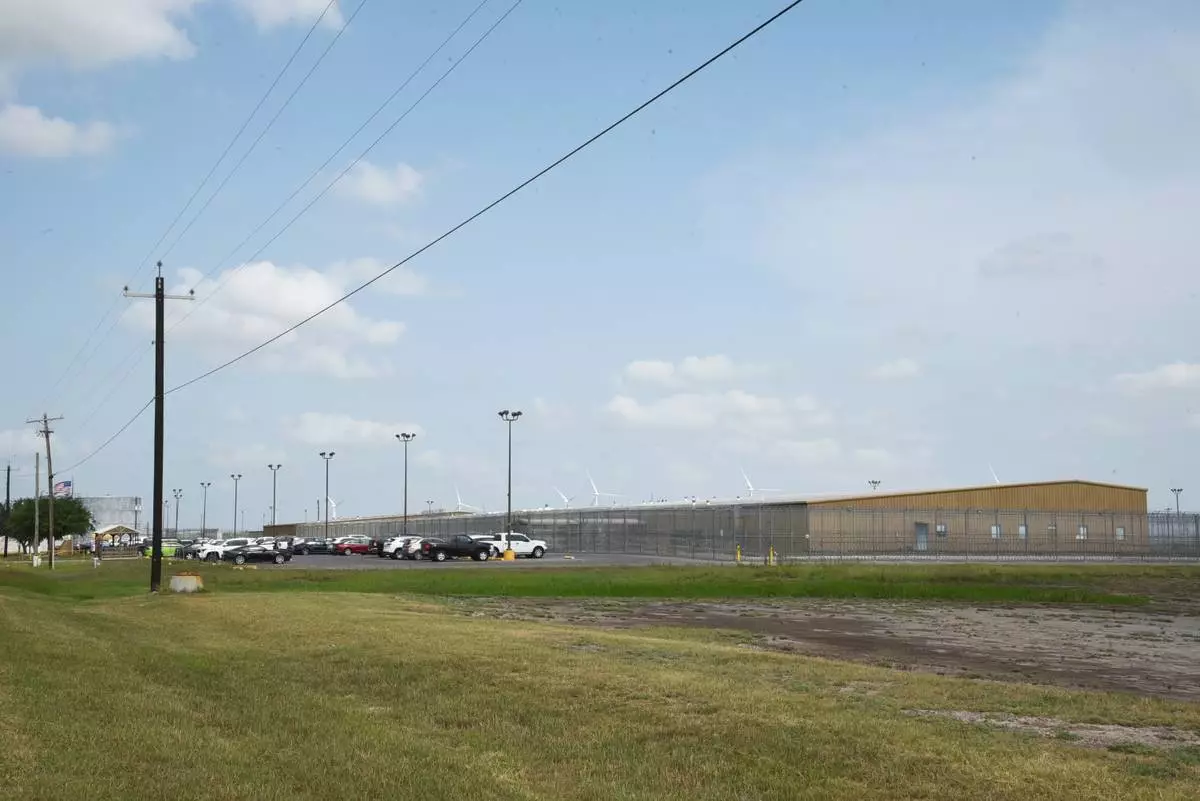
The El Valle Detention Center in Raymondville, Texas is pictured, Thursday, May 1, 2025, after a federal judge in the district barred the Trump administration from deporting any Venezuelans at the south Texas detention center under the Alien Enemies Act, an 18th-century wartime law. (AP Photo/Valerie Gonzalez)
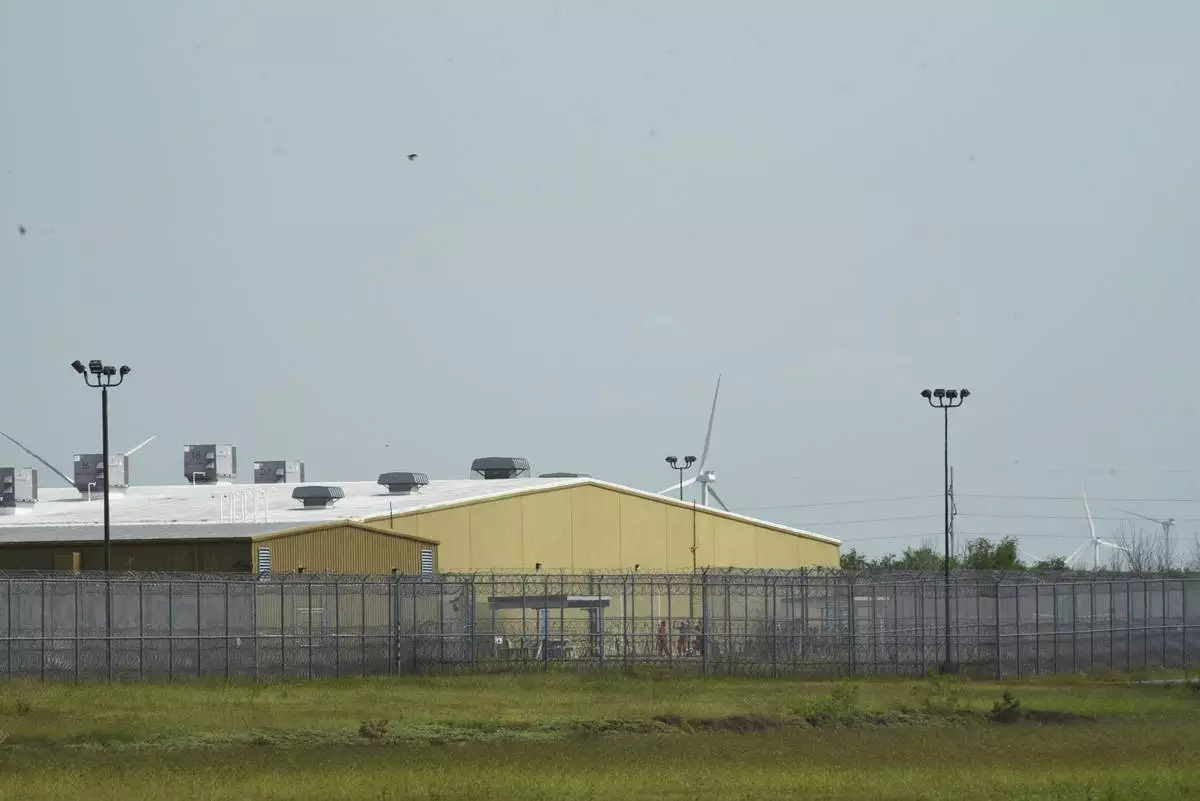
Detainees held at El Valle Detention Center in Raymondville, Texas are seen outside briefly, Thursday, May 1, 2025, after a federal judge in the district barred the Trump administration from deporting any Venezuelans from South Texas under the Alien Enemies Act, an 18th-century wartime law. (AP Photo/Valerie Gonzalez)
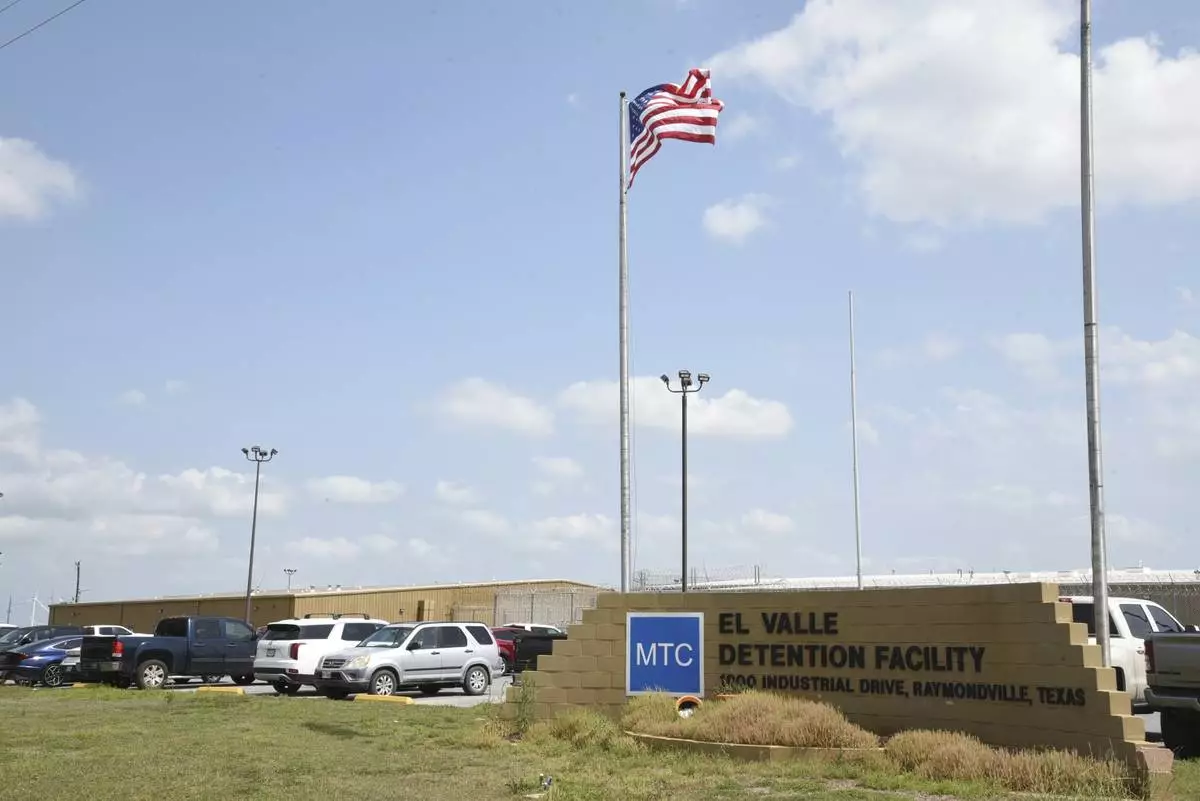
The El Valle Detention Center in Raymondville, Texas is pictured, Thursday, May 1, 2025, after a federal judge in the district barred the Trump administration from deporting any Venezuelans at the south Texas detention center under the Alien Enemies Act, an 18th-century wartime law. (AP Photo/Valerie Gonzalez)
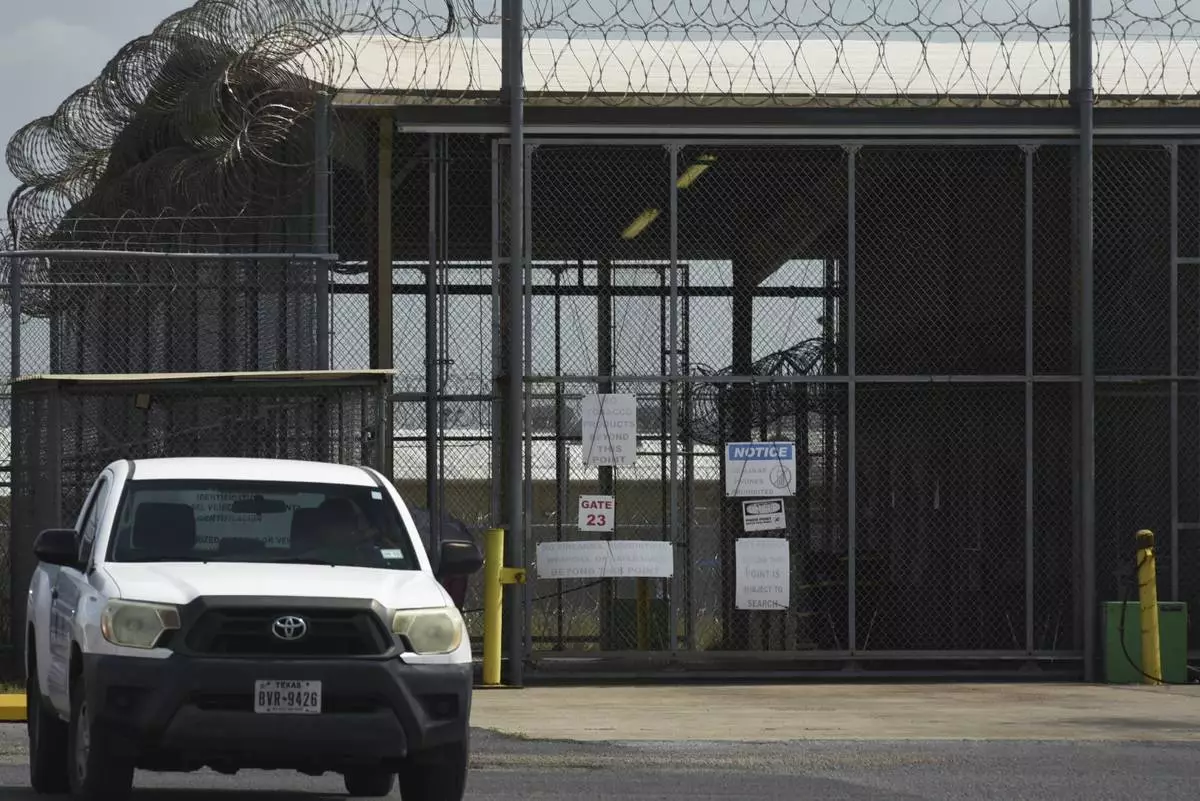
The El Valle Detention Center in Raymondville, Texas is pictured, Thursday, May 1, 2025, after a federal judge in the district barred the Trump administration from deporting any Venezuelans at the south Texas detention center under the Alien Enemies Act, an 18th-century wartime law. (AP Photo/Valerie Gonzalez)
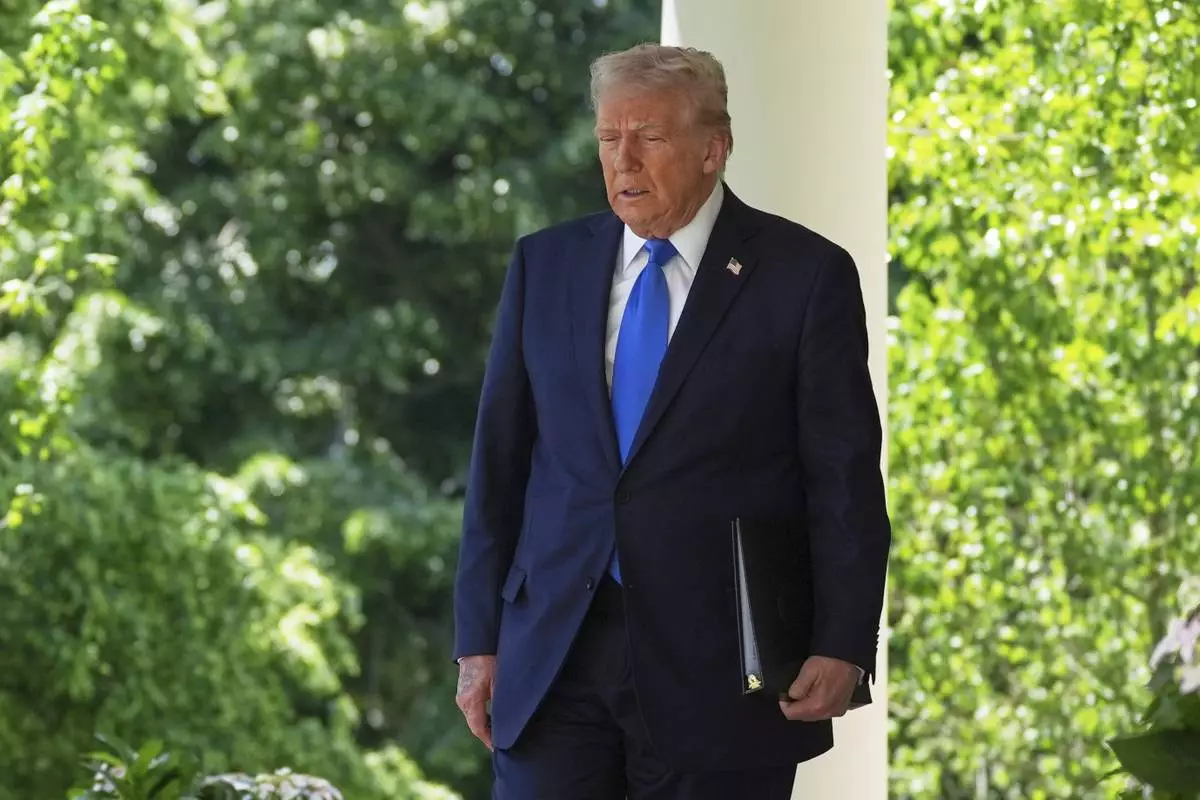
President Donald Trump arrives to speak during a National Day of Prayer event in the Rose Garden of the White House, Thursday, May 1, 2025, in Washington. (AP Photo/Evan Vucci)






